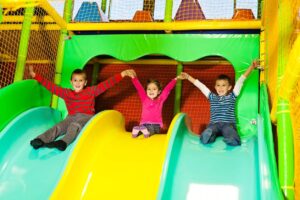 Play: The Building Block of Childhood
Play: The Building Block of Childhood
Why Play is Essential for Children’s Development
In today’s fast-paced world, it’s easy to get caught up in structured activities and academic pressures. However, one of the most important aspects of childhood is simply play. Play is more than just fun; it’s a crucial component of a child’s development. Here’s why:
Cognitive Development
- Problem-solving: Play often involves challenges and obstacles that children must overcome. This helps them develop problem-solving skills and critical thinking abilities.
- Creativity: Unstructured play allows children to explore their imaginations and create their own worlds. This fosters creativity and innovation.
- Learning: Play can be a powerful learning tool. Through pretend play, children can practice social interactions, language skills, and even basic math and science concepts.
Social and Emotional Development
- Empathy: Playing with others helps children understand different perspectives and develop empathy.
- Cooperation: Collaborative play teaches children how to work together, compromise, and share.
- Confidence: As children succeed in play, they build self-esteem and confidence.
- Stress relief: Play can be a great way for children to relax and reduce stress.
Physical Development
- Gross motor skills: Running, jumping, and climbing are all important for developing gross motor skills.
- Fine motor skills: Building with blocks, playing with puzzles, and drawing help children develop fine motor skills.
- Balance and coordination: Play activities like riding a bike or playing tag can improve balance and coordination.
How to Encourage Play
- Limit screen time: Excessive screen time can hinder play. Set limits on television, computer, and smartphone use.
- Create a play space: Designate a special area in your home for play. Provide toys, games, and a comfortable environment.
- Join in the fun: Play with your child. Show them that you value play and enjoy spending time with them.
- Encourage outdoor play: Take your child to the park, go for walks, or play in the backyard.
By prioritizing play in your child’s life, you are investing in their future. Play is not just a pastime; it’s a fundamental building block of childhood that lays the foundation for lifelong learning, social skills, and emotional well-being.
